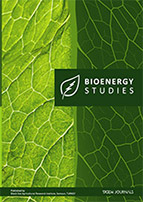Turkish Journal of Fisheries and Aquatic Sciences
2015, Vol 15, Num, 1 (Pages: 93-101)
Long-term Effects of the Larval Photoperiod on the Subsequent Growth of Shi Drum Umbrina cirrosa L. Specimens and the Fillet Texture at Commercial Size
2 Centro Oceanográfico de Murcia, Instituto Español de Oceanografía, Puerto de Mazarrón. Murcia
3 Universidad de Murcia, Facultad de Veterinaria, Dept. Tecnología de Alimentos, Nutrición y Bromatología DOI : 10.4194/1303-2712-v15_1_10 Viewed : 6812 - Downloaded : 4192 Three groups of shi drum Umbrina cirrosa L. were reared with different photoperiod regimes: 24L, 12L:12D and 16L:8D (natural photoperiod) during the larval period and then all of them were transferred to a natural photoperiod. At 11.8 and 20 months of age, the body growth and the muscle parameters reached the highest values in the 24L and 12L:12D groups. The 16L:8D group showed the lowest growth. When comparing 24L with 12L:12D, the highest number of white fibres was found in the 24L group, whereas the greatest fibres size was reached in the 12L:12D group.
Commercial size (28-30 cm; 290-340 g) was reached at 20 months of age in the 24L and 12L:12D groups, but at 23 months in the 16L:8D group. When comparing the three groups at the commercial stage, the larval photoperiod effect was still observed, such that the highest fibres number was again found in the 24L group, whereas the greatest fibres size was reached in the 12L:12D group. The highest values of textural hardness were observed in the 16L:8D and 24L groups. A nutritional analysis was carried out in the 16L:8D group, which showed the following percentage values: 2.66, 21.2, 74.4, and 1.46 of fat, protein, moisture and ash, respectively.
Keywords : photoperiod, muscle cellularity, growth, texture















